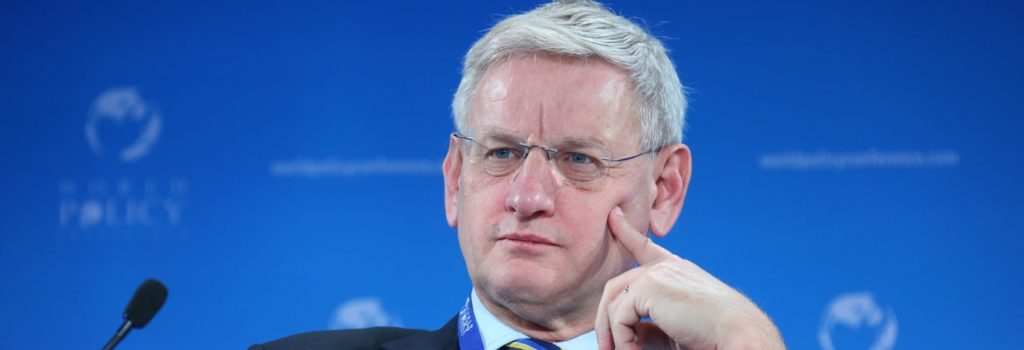
Enrique Mora, the European Union coordinator of talks to revive Iran’s nuclear accord with world powers, right, speaks with Iran’s top nuclear negotiator Ali Bagheri Kani, in Tehran on May 11. (Iranian Foreign Ministry via AP) (AP)
To this end, Enrique Mora, the European Union’s coordinator for Iran nuclear deal negotiations, recently visited Iran to help salvage a deal stuck in the political quicksand in both Washington and Tehran. Earlier this month, the U.S. Senate, including members of Biden’s Democratic Party, passed a measure asking that a deal with Iran should also cover non-nuclear-related issues — an almost-certain dealbreaker. Meanwhile in Tehran, appetite for an agreement is dwindling as hard-line President Ebrahim Raisi boasts about doubling oil sales since he took office last August, despite U.S. sanctions.
Though negotiations on the essence of the deal are effectively concluded, the Europeans are trying to break a deadlock on the issue that continues to snarl the works: the U.S. designation of the Iranian Revolutionary Guard Corps as a foreign terrorist organization. This designation is a largely symbolic measure with little or no relation to the dispute over the nuclear program. Washington and Tehran would be foolish to allow domestic ideological positions to sabotage a nuclear deal that managed — against heavy odds — to survive the presidency of Donald Trump.
Europeans supported President Barack Obama’s diplomatic efforts in Iran, protested Trump’s withdrawal from the Joint Comprehensive Plan of Action, and have now again been at the forefront of diplomatic efforts to end the nuclear crisis with Iran and avoid another disastrous war in the Middle East. So it’s puzzling that, after running on a return to the nuclear deal and promising that “America is back,” Biden has been slow-walking diplomacy that U.S. allies strongly support. The common refrain is that he is “playing it safe” on Iran ahead of the upcoming midterms. But frankly, being the president under whose watch efforts to contain Iran’s nuclear efforts succeeded would be a much bigger hit for Biden and the Democrats in advance of the 2024 elections.
Tehran’s intransigence is also an ongoing problem. Though Raisi brags about increased oil exports, the Iranian people remain under increasing economic pressure. The unjust imprisonment of Europeans, even during Mora’s visit, is yet another affront to Europe. Iran’s regional position continues to undermine Western security interests. Yet all these problems will become more difficult to manage if we are dealing with an Iran not bound by the restraints of a nuclear deal.
The West did not make arms control agreements with the Soviet Union because we endorsed the country’s leadership or sought to normalize relations. We did it because it benefited our national security. The same is true with respect to Iran. Biden must seriously consider the costs of his passivity vis-a-vis Iran and find a way forward — or we may find ourselves in another conflict that no one asked for.
Read the original article on the site of The Washington Post.

